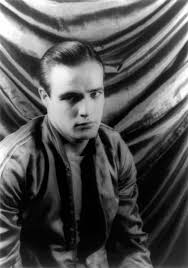
Introduction
Marlon Brando is often heralded as one of the greatest actors in the history of cinema. His acting style revolutionised the film industry in the mid-20th century, moving away from the traditional acting methods of the time to a more realistic, emotionally-driven approach. His influence extends beyond the screen, impacting acting styles and societal attitudes towards film. As the world remembers his contributions, it is essential to reflect on his life and enduring legacy.
Breakthrough Roles
Brando first gained significant recognition for his role in ‘A Streetcar Named Desire’ (1951), where his performance as Stanley Kowalski captivated audiences and critics alike. This was followed by his iconic portrayal of Vito Corleone in ‘The Godfather’ (1972), a role that is frequently cited as one of the greatest in film history. His ability to convey complex emotions and his distinctive method of immersive acting set new standards in Hollywood.
Personal Life and Advocacy
Beyond his film career, Brando was known for his tumultuous personal life. He often rebelled against Hollywood norms and was candid about his struggles with fame and personal relationships. Moreover, he was an activist who championed various civil rights causes, notably the rights of Native Americans. His refusal to accept an Oscar for his role in ‘The Godfather’ in protest against Hollywood’s portrayal of Native Americans is one of the most famous moments in Oscars history.
Influence on Future Generations
Brando’s influence can be seen in the performances of countless actors who have followed in his footsteps. His method acting style, which emphasizes emotional truth and authenticity, laid the groundwork for modern acting techniques. Actors such as Al Pacino, Robert De Niro, and Leonardo DiCaprio have cited him as a significant influence on their work. Brando’s legacy is also reflected in the increased focus on character-driven storytelling in contemporary cinema.
Conclusion
Marlon Brando’s impact on film and popular culture remains profound even decades after his passing in 2004. His innovative acting methods, memorable performances, and commitment to social issues have contributed to his status as an iconic figure in the history of cinema. As we reflect on his legacy, it is clear that Brando not only transformed cinema but has also inspired future generations of actors to push boundaries and embrace authenticity. His life serves as a reminder of the power of the arts to influence society and evoke change.
You may also like

The Importance of Storytelling in Modern Society

Understanding the Fall Season: Change, Beauty, and Tradition

Jay Z: The Evolution of a Music Legend
SEARCH
LAST NEWS
- Remembering Wendy Richard: The Promise to Co-Star Natalie Cassidy
- How Did Anglian Water Achieve an ‘Essentials’ Rating for Mental Health Accessibility?
- Shai Hope Leads West Indies in T20 World Cup Clash Against South Africa
- What We Know About Weston McKennie: Future at Juventus and Past at Leeds
- What We Know About the Upcoming Live Nation Antitrust Trial